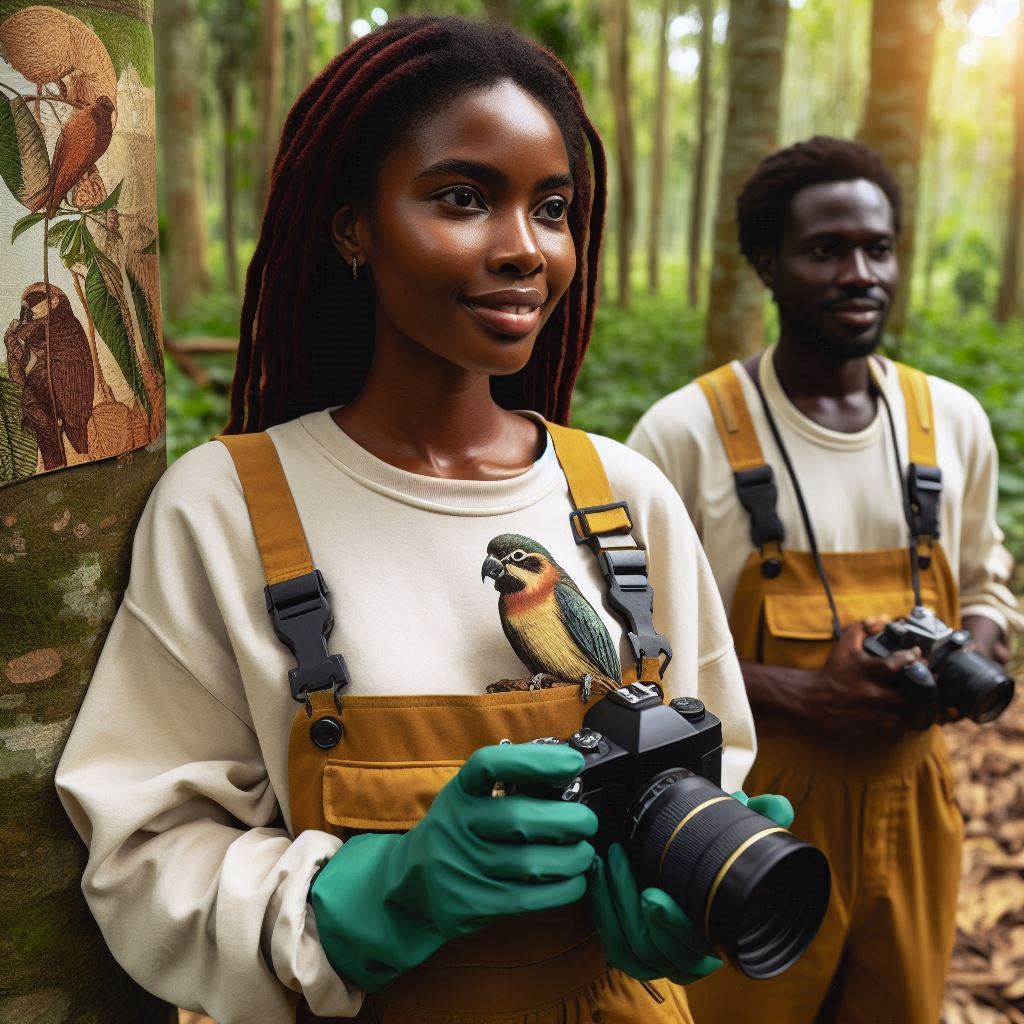Introduction
Wildlife management stands as a pivotal endeavor in Nigeria, vital for preserving its rich biodiversity and ensuring the sustainability of its ecosystems.
The diverse flora and fauna found across Nigeria’s landscapes not only contribute to the nation’s ecological balance but also play a significant role in its cultural heritage and economic development.
In the realm of wildlife management, Nigeria has witnessed remarkable success stories that exemplify the effectiveness of conservation efforts.
These stories illuminate the transformative impact of dedicated initiatives aimed at safeguarding endangered species, restoring habitats, and fostering eco-tourism.
Throughout this blog post, we will delve into several such success stories, each serving as a beacon of hope and inspiration in the field of wildlife conservation.
From the resurgence of endangered species to the establishment of protected areas, these narratives showcase the power of collective action and community engagement in preserving Nigeria’s natural treasures.
By exploring these success stories, we gain valuable insights into the strategies and approaches that have yielded positive outcomes in wildlife management.
Moreover, we underscore the importance of continued investment, collaboration, and innovation in safeguarding Nigeria’s wildlife for future generations.
Through these endeavors, we can forge a path towards a more sustainable and harmonious coexistence between humans and wildlife in Nigeria.
Cross River National Park
Conservation Efforts and Success Stories
Cross River National Park epitomizes Nigeria’s commitment to wildlife conservation. Situated in the verdant landscapes of Cross River State, this protected area serves as a sanctuary for a plethora of endangered species.
Diverse Wildlife Species Benefiting from Management Practices
Conservation initiatives at Cross River National Park have yielded remarkable results. Notably, the park has witnessed a resurgence in the population of the Cross River gorilla, one of the world’s rarest primates.
Through rigorous monitoring and anti-poaching measures, their numbers have steadily increased.
Other species, such as the Nigeria-Cameroon chimpanzee, drill monkey, and forest elephants, have also thrived under the park’s management.
By preserving crucial habitats and implementing sustainable practices, Cross River National Park has provided a safe haven for these vulnerable creatures.
Addressing Challenges and Overcoming Adversities
Despite its successes, the park has encountered challenges, including encroachment and illegal logging. However, through collaboration with local communities and the implementation of community-based conservation initiatives, these threats have been mitigated.
Engaging stakeholders as conservation partners has fostered a sense of ownership and reduced unsustainable practices.
Additionally, the park has embraced technological innovations, such as camera traps and GPS tracking devices, to enhance monitoring efforts. These tools have proven invaluable in detecting and deterring poaching activities, ensuring the protection of wildlife within the park’s boundaries.
Therefore, Cross River National Park stands as a shining example of effective wildlife management in Nigeria. Through dedicated conservation efforts, the park has not only safeguarded biodiversity but also fostered sustainable development.
By addressing challenges and embracing innovation, Cross River National Park continues to inspire conservation efforts nationwide.
Read: Horticulture and Food Security in Nigeria
Yankari Game Reserve
Yankari Game Reserve, located in Bauchi State, Nigeria, is one of the most well-known wildlife reserves in the country. Established in 1956, it covers an area of 2,244 square kilometers and is home to a variety of species.
Wildlife Management Strategies at Yankari Game Reserve
- Strict anti-poaching measures to protect endangered species
- Habitat restoration and conservation efforts to ensure biodiversity
- Community-based conservation programs involving local communities
- Regular monitoring and research to track animal populations
These strategies have played a crucial role in ensuring the survival and thriving of various species within the reserve.
Species that have Thrived at Yankari Game Reserve
- Elephants: Yankari is known for its large population of elephants, which have flourished due to conservation efforts.
- Lions: Though once endangered, the lion population at Yankari has seen a significant increase in recent years.
- Buffaloes: These iconic African animals have also benefited from the reserve’s wildlife management strategies.
- Antelopes: Several species of antelopes, including impalas and kobs, are thriving within the reserve.
Economic Impact on the Local Community
The success of wildlife management at Yankari Game Reserve has had a positive economic impact on the local community surrounding the reserve. Some of the benefits include
- Ecotourism: The presence of diverse wildlife attracts tourists, leading to revenue generation for the community.
- Job Opportunities: The tourism industry created by the reserve has provided employment for locals in various sectors.
- Infrastructure Development: The influx of tourists has prompted the development of infrastructure in the area, benefiting the community.
- Conservation Funding: Revenue generated from tourism is often reinvested in wildlife conservation efforts, further benefiting the local community.
In review, the successful wildlife management strategies at Yankari Game Reserve have not only ensured the conservation of various species but have also had a positive economic impact on the local community. It serves as a model for sustainable conservation practices in Nigeria.
Read: Innovations in Nigerian Horticulture
Gain More Insights: Top Livestock Production Technologies in Nigeria
Gashaka Gumti National Park
- Conservation initiatives at Gashaka Gumti National Park
- Specific species benefiting from management practices
- Collaborative efforts among government, NGOs, and local communities
Gashaka Gumti National Park, located in Nigeria, has been a beacon of successful wildlife management. The park’s conservation initiatives have played a pivotal role in preserving and nurturing its diverse ecosystem.
One of the key strategies employed at Gashaka Gumti National Park is the implementation of strict anti-poaching measures. This has significantly reduced the illegal hunting of endangered species, allowing their populations to thrive.
Specific species that have seen remarkable population growth as a result of these management practices include the critically endangered Nigerian-Cameroon chimpanzee. Through targeted protection efforts, their numbers have shown a promising increase in recent years.
Moreover, the collaborative efforts between government agencies, non-governmental organizations (NGOs), and local communities have been instrumental in the success of wildlife management at Gashaka Gumti National Park.
These partnerships have facilitated the implementation of sustainable conservation practices.
Government entities provide crucial funding and support for conservation projects within the park, ensuring the long-term viability of wildlife populations. NGOs bring expertise and resources to the table, further enhancing conservation efforts.
Local communities are actively involved in wildlife management through education programs and community-based conservation initiatives.
This grassroots involvement fosters a sense of ownership and responsibility among residents, contributing to the overall success of conservation efforts.
Basically, Gashaka Gumti National Park stands as a shining example of effective wildlife management in Nigeria.
Through a combination of conservation initiatives, species-specific protection measures, and collaborative partnerships, the park has achieved significant success in its efforts to preserve and protect its rich biodiversity.
Read: Horticultural Tools and Equipment in Nigeria

Hadejia Nguru Wetlands
Exploring the Significance of Wetland Conservation for Wildlife in Nigeria
The Hadejia Nguru Wetlands, nestled in Nigeria’s northeastern region, represent a vital ecosystem for wildlife conservation. These wetlands serve as crucial habitats for numerous species, offering refuge, breeding grounds, and feeding areas.
The Success Stories of Species Protected and Preserved in the Hadejia Nguru Wetlands
Wetland conservation is paramount for sustaining biodiversity in Nigeria. The Hadejia Nguru Wetlands, with their diverse array of flora and fauna, exemplify the importance of preserving these ecosystems.
By protecting wetlands, we safeguard the habitats of migratory birds, aquatic species, and mammals, ensuring their survival and contributing to overall ecosystem health.
Addressing Ongoing Challenges and Future Plans for Improved Management
Success stories abound within the Hadejia Nguru Wetlands, showcasing the positive impact of conservation efforts. Species such as the African elephant, Nile crocodile, and various waterfowl have thrived within the protected confines of these wetlands.
Through habitat restoration, anti-poaching measures, and community engagement, their populations have seen notable increases, attesting to the effectiveness of conservation initiatives.
Despite these achievements, challenges persist in the management of the Hadejia Nguru Wetlands. Encroachment, pollution, and water scarcity threaten the integrity of these vital ecosystems.
Addressing these challenges requires concerted efforts from government agencies, conservation organizations, and local communities.
Enhanced enforcement of environmental regulations, sustainable land use practices, and community-based conservation projects are essential for mitigating these threats and ensuring the long-term sustainability of the wetlands.
Looking ahead, there are plans for improved management of the Hadejia Nguru Wetlands. Collaborative efforts are underway to enhance monitoring and surveillance, strengthen law enforcement, and promote sustainable livelihoods for local communities.
By investing in wetland conservation and management, Nigeria can preserve its natural heritage, support biodiversity, and promote sustainable development.
Ultimately, the Hadejia Nguru Wetlands represent a success story in wildlife management in Nigeria. Through effective conservation measures, these wetlands have become havens for diverse species, contributing to the country’s biodiversity and ecological resilience.
While challenges persist, proactive measures and community involvement offer hope for the continued preservation of these invaluable ecosystems.
Read: Field Work & Practical Training in Nigerian Forestry Schools
Find Out More: Top Seed Companies in Nigeria and Their Contributions
Learn More: Role of Women in Nigerian Horticulture
Conclusion
As we reflect on Nigeria’s wildlife management landscape, a tapestry of successes unfolds before us. From the lush rainforests to the expansive savannahs, stories of conservation triumphs permeate the nation’s diverse ecosystems.
These successes are not mere anecdotes but concrete evidence of the effectiveness of dedicated conservation efforts.
The resurgence of once-threatened species, the establishment of protected areas, and the implementation of innovative conservation strategies all attest to Nigeria’s commitment to safeguarding its natural heritage.
However, our journey towards biodiversity conservation is far from over. As we celebrate our achievements, we must also acknowledge the challenges that lie ahead. Habitat loss, poaching, and climate change continue to threaten wildlife populations across the country.
Therefore, it is imperative that we sustain our momentum and redouble our efforts to protect and preserve Nigeria’s biodiversity. Each individual has a role to play in this collective endeavor.
Whether through advocacy, volunteering, or supporting conservation organizations, every action counts.
Let us not falter in our resolve. Let us stand as stewards of the land, guardians of our wildlife, and champions of conservation. Together, we can ensure a future where Nigeria’s rich biodiversity thrives for generations to come.




